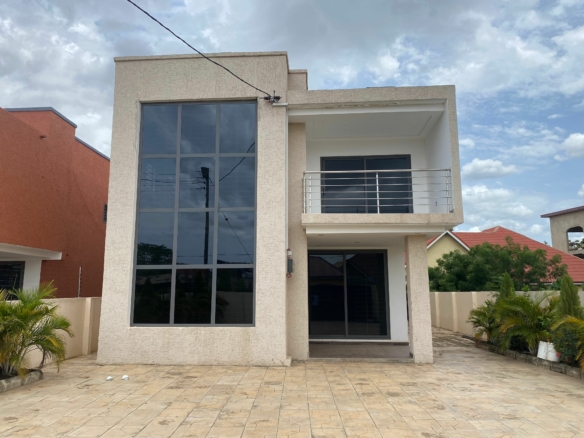In Ghana’s rapidly evolving real estate landscape, two influential organisations stand at the forefront of policy advocacy, professional standards, and industry development: the Ghana Real Estate Developers Association (GREDA) and the Ghana Real Estate Professionals Association (GREPA). Together, these associations are transforming the regulatory environment and shaping the future of Ghana’s property market. This article explores their pivotal roles, recent policy wins, and ongoing real estate policies in Ghana initiatives that affect developers, agents, investors, and homebuyers alike.
GREDA: Championing Developers’ Interests Since 1988
Origins and Mission
Established in October 1988 under Ghana’s Company Code Act 179 of 1963, the Ghana Real Estate Developers Association (GREDA) emerged during a critical economic transition. As part of the structural adjustment programs implemented by the then-PNDC government, GREDA was formed to facilitate private sector leadership in housing delivery as the state reduced its direct involvement in housing provision.
With an initial membership of just fourteen companies, GREDA has grown to include over 250 members nationwide, predominantly concentrated in Ghana’s southern regions. Its membership spans core real estate developers, input suppliers, service providers, and financial institutions.
GREDA’s mission is clear: to provide quality, affordable housing for all segments of the population through strategic partnerships with government and industry stakeholders. The association believes that “real estate developers should have the freedom to operate as entrepreneurs in an open and competitive business environment,” while recognising housing as a fundamental strength of the nation.
Policy Advocacy and Government Relations
GREDA has positioned itself as a vital advocate for developer-friendly policies and regulatory frameworks. The association maintains regular dialogue with government agencies, particularly the Ministry of Works and Housing, to shape policies affecting the real estate sector.
Recent advocacy efforts have focused on:
-
Tax Incentives and Exemptions:
GREDA has been instrumental in pushing for strengthened tax incentives to attract private investment in the housing sector. In 2022, the Minister of Works and Housing, Francis Asenso-Boakye, announced plans to enhance tax exemption laws for housing industry players – a direct response to GREDA’s consistent advocacy.
-
Affordable Housing Facilitation:
GREDA has been vocal in advocating for a redefined government role in housing delivery. In September 2023, the association’s Executive Secretary, Samuel Amegayibor, emphasized that the government should limit its role to facilitation rather than direct development: “GREDA believes that government must strongly remove itself from direct involvement in the delivery of housing and facilitate the private sector by fixing the land acquisition bottlenecks, access to funding and basic infrastructure.”
-
Housing Finance Innovation:
The association has championed alternative financing mechanisms, including the development of Real Estate Investment Trusts (REITs) and reforms to make mortgages more accessible to average Ghanaians.
-
Local Industry Support:
GREDA consistently advocates for government backing of local developers rather than foreign partnerships, arguing that Ghanaian companies have demonstrated the capacity to deliver quality housing at scale when properly supported.
Building Industry Capacity and Standards
Beyond advocacy, GREDA plays a crucial role in enhancing the capacity of Ghana’s real estate development sector through:
- Pooling resources for economies of scale in development
- Promoting quality benchmarks and adherence to national building standards
- Encouraging the use of local building materials and supporting research into their suitability
- Facilitating knowledge transfer on construction innovations
- Connecting developers with financial institutions for effective mortgage schemes
GREPA: Elevating Professional Standards Since 2011
Evolution and Vision
The Ghana Real Estate Professionals Association (GREPA), established in 2011, serves as the voice of real estate professionals in Ghana. While initially focused on real estate agents and brokers, GREPA has evolved to embrace a broader vision encompassing the entire professional ecosystem.
GREPA’s mission extends beyond mere representation to include professional development, technological advancement, advocacy, networking, and formalisation of Ghana’s real estate industry. The association believes in fostering harmony and interaction among members while supporting effective government regulation.
Professional Standards and Ethics
GREPA has been at the forefront of raising the bar for professionalism in Ghana’s real estate sector through:
-
Code of Ethics:
The association has developed comprehensive ethical standards that guide members’ conduct and business practices.
-
Continuing Education:
GREPA offers regular professional development programs to ensure members remain current with industry best practices and innovations.
-
International Partnerships:
As a proud member of the U.S.-based National Association of REALTORS®, GREPA has introduced global standards and practices to Ghana’s real estate market.
-
Technology Adoption:
Through initiatives like the GREPA Technology Academy, the association promotes digital tools and proptech solutions that enhance service delivery and market transparency.
Policy Advocacy and Regulatory Influence
GREPA has positioned itself as a credible platform for policy advocacy, focusing on:
-
Real Estate Agency Act Implementation:
GREPA has been actively engaged with the implementation of the Real Estate Agency Act, 2020 (Act 1047), which established the Real Estate Agency Council (REAC) to regulate agents and brokers.
-
Industry Unification:
GREPA has advocated for a unified approach to real estate sector regulation, proposing itself as an umbrella body for all professionals. This would strengthen collective bargaining power in policy discussions.
-
Government Engagement:
In March 2025, GREPA leadership met with the Minister of Works and Housing to discuss industry concerns, regulatory implementation, and the development of a national property data system.
-
Market Transparency:
The association promotes data-driven decision-making and has pushed for better information systems to guide policy and investment.
GREDA and GREPA: Collaborative Impact on Ghana’s Real Estate Policy
When working in concert, these two associations have significantly influenced Ghana’s real estate policy landscape in several key areas:
1. The Real Estate Agency Act and REAC
Perhaps the most significant policy achievement involving both organisations has been the passage and implementation of the Real Estate Agency Act, 2020 (Act 1047). This landmark legislation established the Real Estate Agency Council (REAC) to regulate real estate agency practice, including sales, purchases, rentals, and leasing.
The Act, which came into force in December 2020, requires all real estate agents and brokers to be licensed, maintain professional standards and protect consumers from fraud. GREPA has advocated for formal collaboration with REAC, suggesting the association should hold a permanent seat on the regulatory body to ensure practitioners’ voices are represented in regulatory decisions.
2. Affordable Housing Initiatives
Both associations have been influential in reshaping Ghana’s approach to affordable housing:
- GREDA has consistently advocated for the government to focus on enabling private developers rather than directly building housing units.
- GREPA has promoted innovative approaches to housing finance and development that make homeownership more accessible.
- Together, they have pushed for policy reforms that address Ghana’s housing deficit, estimated at 1.8 million units.
3. Tax and Fiscal Policy
The associations have collaboratively advocated for:
- VAT exemptions for affordable housing projects
- Incentives for the local production of building materials to reduce construction costs
- Streamlined land acquisition processes
- Development of the Home Ownership Fund to provide cedi-denominated mortgages
4. Data-Driven Market Development
Both GREDA and GREPA recognise the importance of reliable market data for policy development:
- GREPA has championed the creation of a national property data system to improve transparency
- GREDA has advocated for better information on housing needs and market trends
- Together, they provide valuable industry insights that inform government policy
The Path Forward: Challenges and Opportunities
Despite significant progress, several challenges remain in Ghana’s real estate policy landscape:
1. Implementation Gaps
While the Real Estate Agency Act represents a major step forward, full implementation faces challenges. GREPA continues to work with REAC to ensure effective enforcement and awareness among practitioners.
2. Housing Affordability
Despite years of advocacy, housing remains unaffordable for many Ghanaians. Both associations continue to push for practical solutions that bridge the affordability gap through innovative financing, local material use, and enabling policies.
3. Fragmentation
Though strides have been made toward unification, Ghana’s real estate sector still shows signs of fragmentation. GREPA’s vision to serve as an umbrella body faces practical challenges of integration across diverse professional groups.
4. Access to Finance
Limited access to affordable, long-term financing remains a significant bottleneck. Both associations advocate for financial innovations that address this constraint.
How GhanaPropertyFinder.com Supports These Efforts
As Ghana’s leading online real estate marketplace, GhanaPropertyFinder.com actively supports GREDA and GREPA’s missions by:
-
Promoting Transparency:
Providing a platform where property listings adhere to professional standards
-
Supporting Licensed Professionals:
Connecting buyers and renters with reputable, policy-compliant agents and developers
-
Market Intelligence:
Offering insights on trends, pricing, and demand patterns that inform policy discussions
-
Digital Transformation:
Accelerating the adoption of technology in Ghana’s real estate sector
-
Consumer Education:
Raising awareness about regulatory protections and the importance of working with licensed professionals
Conclusion: A Collaborative Future for Ghana’s Real Estate
The collaborative efforts of GREDA and GREPA continue to transform Ghana’s real estate policy landscape. Through persistent advocacy, professional development, and stakeholder engagement, these associations are creating a more structured, transparent, and investor-friendly real estate environment.
As Ghana faces rapid urbanisation and growing housing demands, the role of these industry associations becomes increasingly vital. Their continued collaboration with government agencies, regulatory bodies, and each other will be essential in addressing the country’s housing challenges while promoting sustainable industry growth.
By supporting GREDA and GREPA’s policy initiatives, stakeholders across the real estate value chain can contribute to a more vibrant and inclusive property market that serves all Ghanaians.
FAQs About GREDA, GREPA, and Real Estate Policy in Ghana
-
What is the main difference between GREDA and GREPA?
GREDA primarily represents real estate developers and focuses on housing delivery, while GREPA represents real estate professionals such as agents and brokers, focusing on practice standards and service quality.
-
How does the Real Estate Agency Act affect property buyers and sellers?
The Act provides greater protection for consumers by ensuring they work with licensed, qualified professionals, reducing fraud risk and improving transaction transparency.
-
What role do these associations play in affordable housing development?
GREDA and GREPA advocate for enabling policies that make housing more affordable, including tax incentives, land access reforms, and innovative financing mechanisms.
-
How can real estate professionals engage with these associations?
Both associations offer membership opportunities with benefits including advocacy representation, networking, professional development, and industry updates.
-
What recent policy wins have these associations achieved?
Recent wins include the passage and implementation of the Real Estate Agency Act, strengthened tax incentives for developers, and greater recognition of the private sector’s role in addressing Ghana’s housing deficit.
For the latest updates on GREDA and GREPA initiatives and to connect with reputable, policy-driven professionals, visit GhanaPropertyFinder.com.






